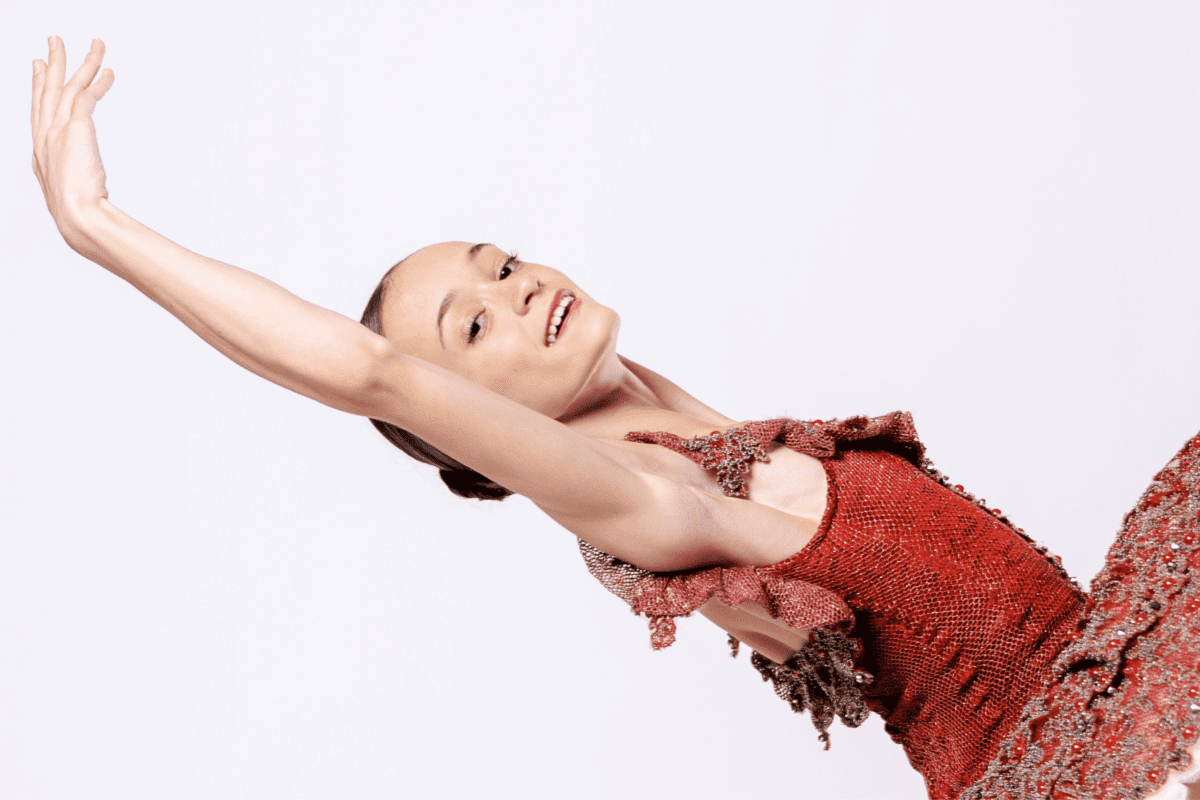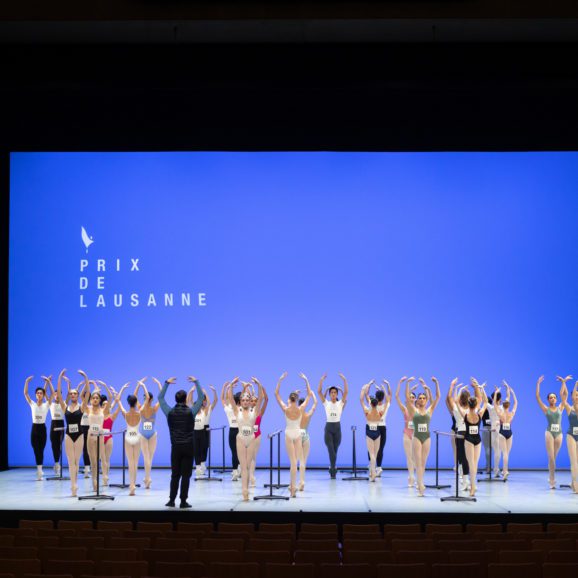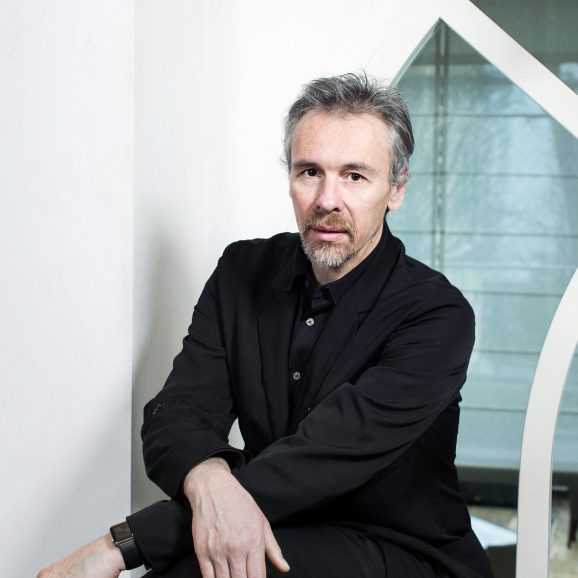09 Oct 2019
During my trip to the United States, I stopped in Atlanta, GA to visit Adrián Cruz, the candidate I was an interpreter for during Prix de Lausanne 2017. I asked him about the two years following the competition. I remember him as a very hard working and positive dancer, so here is a little interview to get a grasp of what his life is like now…
Hi Adrián, could you introduce yourself?
I’m Adrián Cruz, I come from Zaragoza (Spain) and I’m 19 years old. I’ve been studying at María de Ávila and I’m currently at the Atlanta Ballet 2. I began with Breakdance at the age of 6, but when I turned 9 years old I decided to follow my brother’s path and I wanted to try ballet. I went to take a class and the teacher told my mother: “don’t worry, he just wants to look like his brother and he’ll get over it,” but when she came back to pick me up she told her: “let him continue because he’s good.” My brother (Diego Cruz) dances at the San Francisco Ballet since he was 18 years old (he’s now 32) and I wanted to follow in his footsteps and do this as a living. He has always been an example and people say that we look alike when we dance, but as he is much older, we don’t get compared that much in this sense, but I really like being able to do what my brother does.
It has been almost two years since you participated in the Prix de Lausanne. What is your best memory about the week?
The whole week was incredible. I remember that at the beginning I was very nervous about everything that had to do with introducing myself because I didn’t speak English and my first impression was: “wow I’m going to be so lost and I don’t know if I’ll be able to express myself, if I’ll be confident in myself, and how I’m going to understand other people and teachers during classes”, but you were there with me and I was able to do everything.
I would say that my best memory was the performance I did because it’s what I enjoyed most, but everything I got out of the Prix de Lausanne is good because the experience I have acquired from it helped me turn into the dancer I am today. While not making it to the Finals, we had another class (the Networking Forum) during which a lot of companies were able to watch us, and I did well in this class so I’m happy with my work at the Prix de Lausanne.
What did you think about the schedule and classes of the Prix de Lausanne?
It was good because we had contemporary and ballet classes and we did a lot of rehearsals on stage for the variations. I danced La Sylphide (James, Act II, Bournonville (Lovenskjold)) for my classical variation and then for contemporary I danced Le Sacre de John Neumeier (at the Prix de Lausanne 2017 all the contemporary variations were Neumeier’s). My teacher (Lola de Ávila) told me that she would choose this one because it was something completely different from what I was doing for classical, and that way people would be able to see that I could master both kind of dances. It was a very difficult variation and only three boys dared to choose it. Yohan Stegli – the variation’s coach – told us that when he danced it, he threw up once because of how hard and tiring it was.
Why did you choose to go to The School of the Hamburg Ballet?
At the end of the week, and after the Networking Forum, I received about ten offers and I discussed it with my teacher because I had this idea in my mind that I was going to get into a company. She told me that they wouldn’t hire me, and she advised me to go there because it is a really good school, with a good repertoire where they would rely a lot on me.
And what about Atlanta Ballet 2?
When I graduated from Hamburg, they didn’t offer me any contract and the bad thing was that I had hurt my foot and didn’t know how to audition. My brother told me about Atlanta Ballet, a growing small company in which I would be given a lot of opportunities. So I sent a video, I got accepted so here I am and it is amazing. I feel really at ease, people are great, the director and the teachers are treating me very well and rely on me a lot. Until now we’ve done The Nutcracker (by Yuri Possokhov) together with the main company and Beauty and the Beast (by Bruce Wells) that we performed in February 2019.
Could you tell me about your weekly schedule?
Atlanta’s schedule is hard. We have class in the morning: three days with the main company and three days con Atlanta Ballet 2. Then we usually have a 3-hour rehearsal, a one-hour break to eat and another 3-hour rehearsal. The main company doesn’t work on Mondays, but Atlanta Ballet 2 takes a ballet class in the morning, a contemporary class, a Pas de Deux class and Pilates.
Do you think there is a difference when it comes to dancing in Spain, in Germany or in the United States? What is it like to dance in Germany? And here in the United States?
In Spain I feel like ballet isn’t as valued as it is in the United States or in other European countries. Everybody who studied in Spain eventually left to America or to other parts of Europe, although now Spain has a company that is not at all bad. In terms of differences between Europe and America, I think that it mainly depends on the company. It might be that there is more diversity in the United States though.
Do you have a dream and a company you would like to be a part of?
There isn’t really a company I want to be a part of, but of course my dream is to become a principal dancer in a company where they would appreciate me and give me a lot of opportunities to dance leading roles. I feel like I would be equally happy in a small company and I’ll get to dance more. I always seek happiness where I go as well as opportunities to dance. Moreover, in the ballet world you’re not always staying in the same place. A lot of people move and try different things. You can start in a small company, be part of the corps de ballet and get to dance a lot of main roles and be a star there, then move to another place and be nothing or the opposite. Everything is a bit unexpected.
I think that a dancer’s perspective should be to be happy with his environment, being where he is, dancing what he likes to dance and being happy with himself.
Is there a role you would enjoy dancing?
I would really enjoy dancing Don Quixote because, apart from the fact that it’s my favorite ballet, I have never been able to perform it on stage. The other one I like a lot is La Sylphide from which I’ve danced a lot of variations. I’ve always been more attracted to ballet, but nowadays the ballet world is adapting a little bit to neoclassical or contemporary pieces that I also enjoy dancing.
Adrián is currently dancing with Atlanta Ballet 2!
Alice Moraz





